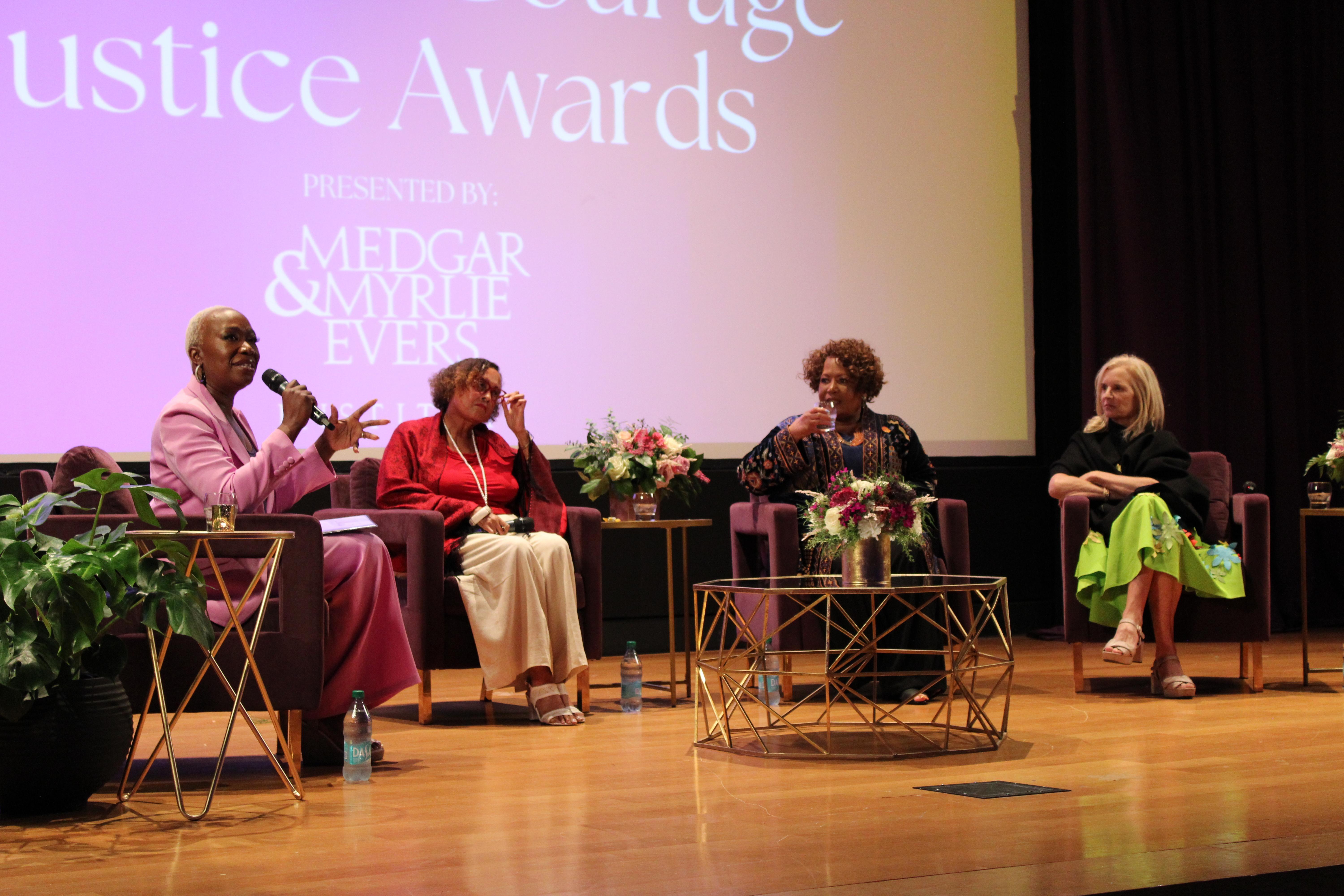Daughters of slain civil rights leaders — Vernon Dahmer, Sen. Robert F. Kennedy and Medgar Evers — shared stories and reflections during an emotional conversation before a packed auditorium of civil rights veterans, students, and local residents. The panel was moderated by Joy-Ann Reid, former MSNBC host and political analyst.
“We talk so much about your dads and about the legend of them and the loss of them and the sorrow that that brings,” Reid said at the start of the program. “But no, we are celebrating a birthday. This is a birthday party. So we wanna make it fun off the top.”
Reid then asked each panelist to share a favorite “girl dad” story — personal memories of how their fathers showed love outside of the public spotlight.
Bettie Dahmer, the youngest of eight children and the only daughter of Forrest County NAACP president Vernon Dahmer, recalled the tender side of a man often seen as a commanding figure.
“The old man liked me,” she said. “I had tea parties as I got older. And that old man, that big burly man you saw in that picture, he would come to my make-believe tea parties. And with my tea sets, he’d be there playing make-believe.”
Kerry Kennedy, daughter of Sen. Robert F. Kennedy, who championed civil rights and was assassinated in 1968, shared her experience of being the seventh of 11 children.
“I was my father's favorite, I want you to know that,” she joked, drawing laughter from the audience.
Reena Evers-Everette, the only daughter of Medgar Evers, Mississippi’s first NAACP field secretary, shared a story of family joy that stood in stark contrast to the ever-present threats surrounding their lives.
“One of my favorite memories is when he would come home,” she said. “And he would be home for longer than 24 hours. He would go to the record player, put on a 33 with Chubby Checker, and we would twist the night away.”
But Evers-Everette also spoke about the trauma of growing up in the crosshairs of white supremacist violence.
“More impactful to me is because of the threatening calls that kept coming into our house,” she said. “I happened to get some of them, and they would tell me what they were going to do to my father, to my mother, to our family — and why.”
Despite the fear, she remembered how her father comforted her.
“My father always soothed that pain. Always soothed that fear,” she said.
Medgar Evers was assassinated in the driveway of his home in 1963. His daughter was in the house when it happened.
When asked whether she has forgiven the man who murdered her father, Evers-Everette was candid.
“I've been mad, very mad,” she said. “People have asked me, ‘Have you forgiven?’ I'm still working on it. One thing I will tell you — I will be honest with how I feel, so you will hear it. I'm still working on it. We're all God's children, and I understand that.”
Medgar Evers would have turned 100 years old on July 2.




